Find Help
More Items From Ergsy search
-
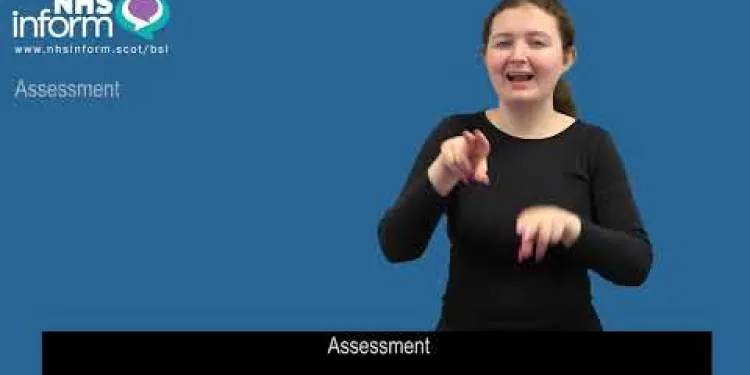
BSL - Diagnosis of obsessive compulsive disorder (OCD)
Relevance: 100%
-
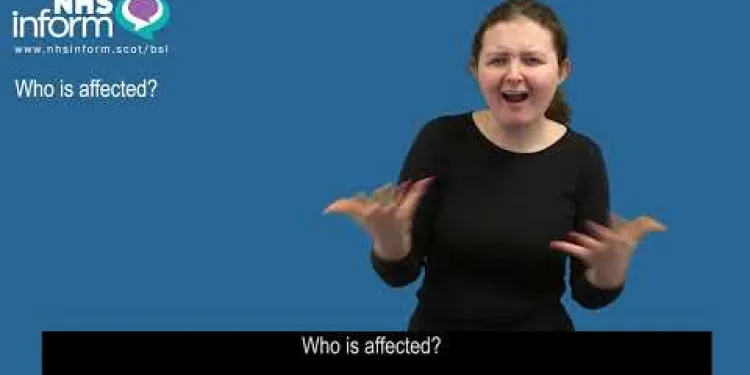
BSL - Introduction to obsessive compulsive disorder (OCD)
Relevance: 84%
-
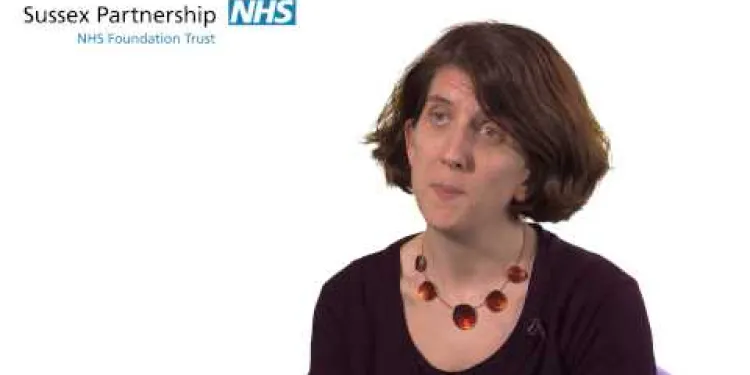
Clara Strauss: What is Obsessive Compulsive Disorder OCD
Relevance: 84%
-
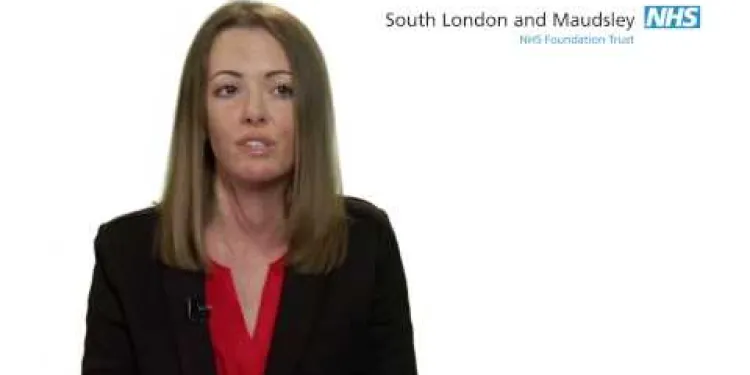
OCD
Relevance: 55%
-
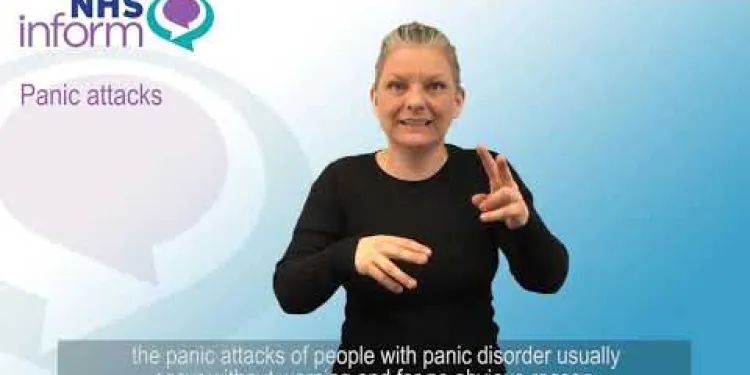
BSL - Diagnosis of panic disorder
Relevance: 30%
-
Can eating disorders occur with other mental health conditions?
Relevance: 29%
-
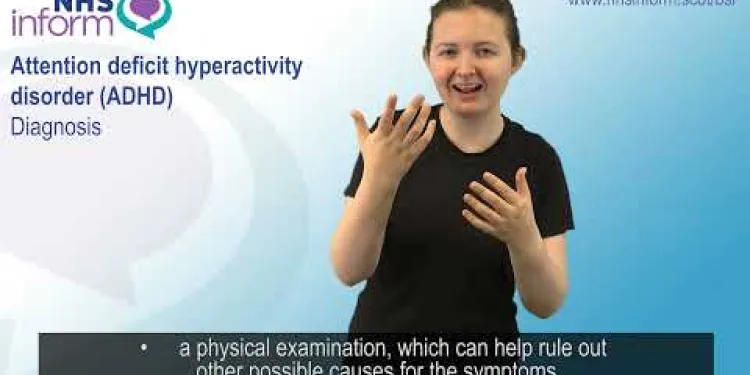
Attention deficit hyperactivity disorder (ADHD) - Diagnosis
Relevance: 24%
-
What are common symptoms of eating disorders?
Relevance: 22%
-
What is an eating disorder?
Relevance: 22%
-

How do eating disorders affect mental health?
Relevance: 21%
-
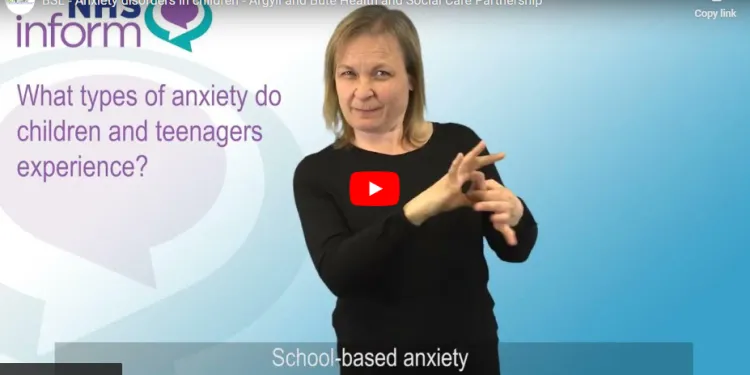
What type of anxiety do children and teenagers experience?
Relevance: 21%
-
What are the early warning signs of an eating disorder?
Relevance: 21%
-
What is body dysmorphia and how is it related to eating disorders?
Relevance: 21%
-
How are eating disorders diagnosed?
Relevance: 20%
-
Are there preventative measures for eating disorders?
Relevance: 18%
-
Who is at risk for developing an eating disorder?
Relevance: 18%
-
How can someone seek help for an eating disorder?
Relevance: 18%
-
What is an Eating Disorder?
Relevance: 17%
-
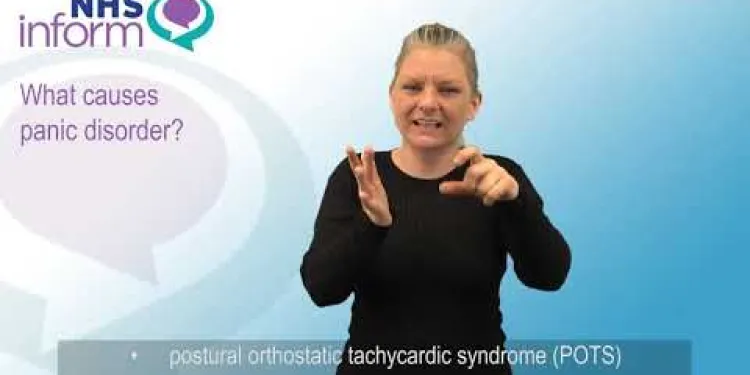
BSL - Introduction to panic disorder
Relevance: 17%
-
Are eating disorders only about food?
Relevance: 16%
-
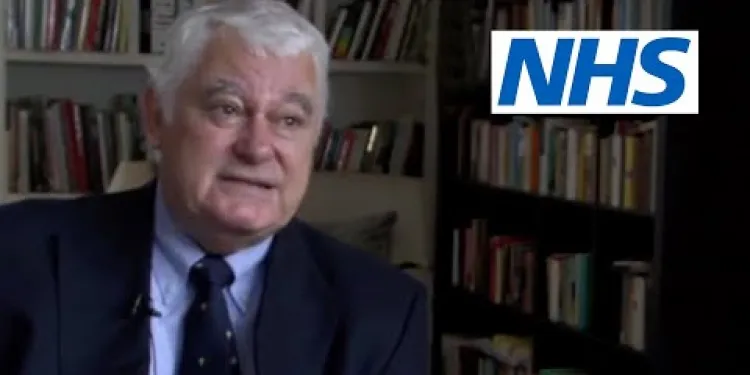
Bipolar disorder: Rod's story | NHS
Relevance: 16%
-
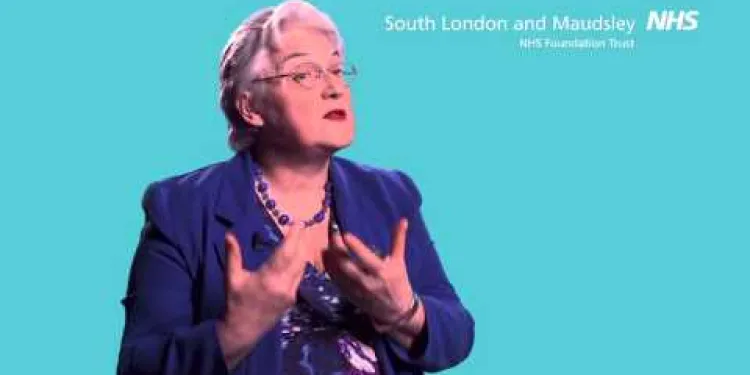
Eating disorders: treatment
Relevance: 16%
-

Living with Bipolar Disorder
Relevance: 16%
-
Is it possible to recover from an eating disorder?
Relevance: 15%
-

What is the impact of eating disorders on physical health?
Relevance: 15%
-
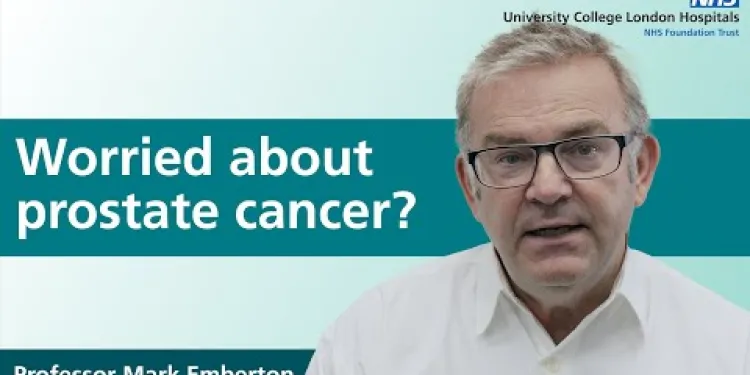
Prostate cancer diagnosis and tests
Relevance: 15%
-
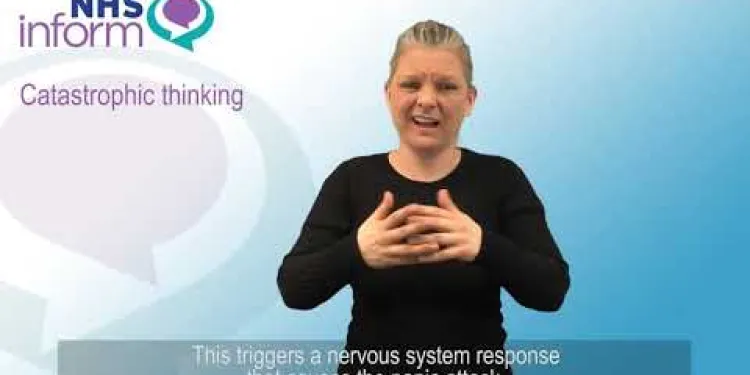
BSL - Causes of panic disorder
Relevance: 15%
-
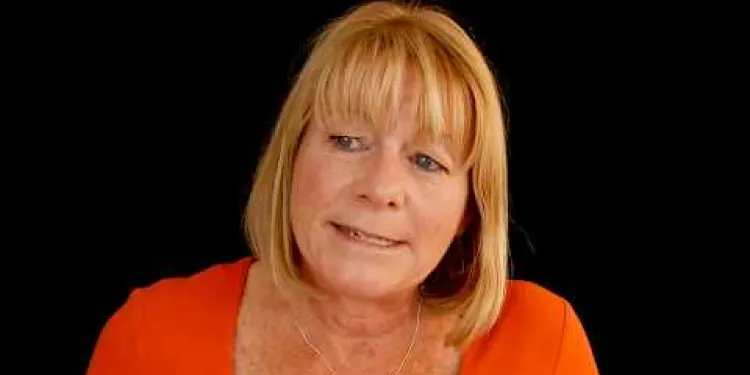
The treatment approach for an eating disorder
Relevance: 15%
-
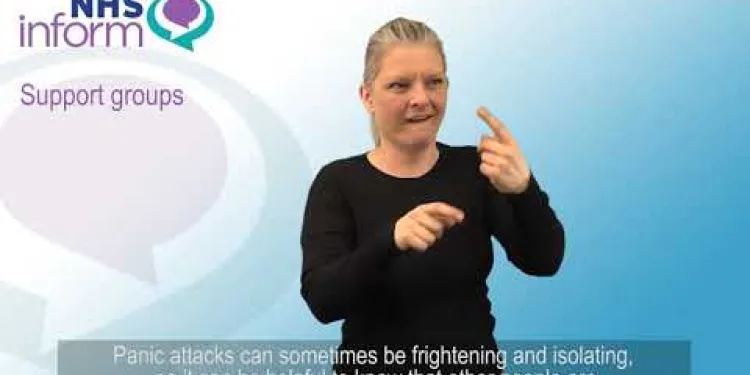
BSL - Treatment of panic disorder
Relevance: 15%
-
Can eating disorders be treated?
Relevance: 15%
-
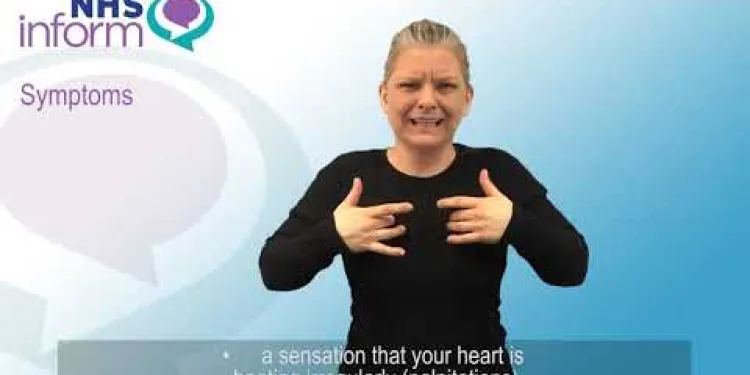
BSL - Symptoms of panic disorder
Relevance: 15%
-
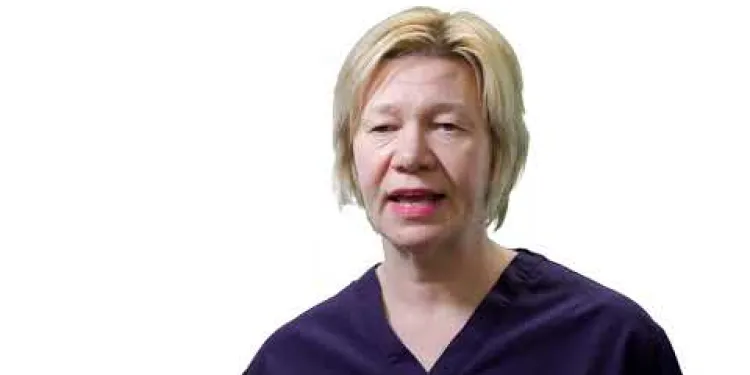
Head and Neck Cancer Diagnosis
Relevance: 15%
-
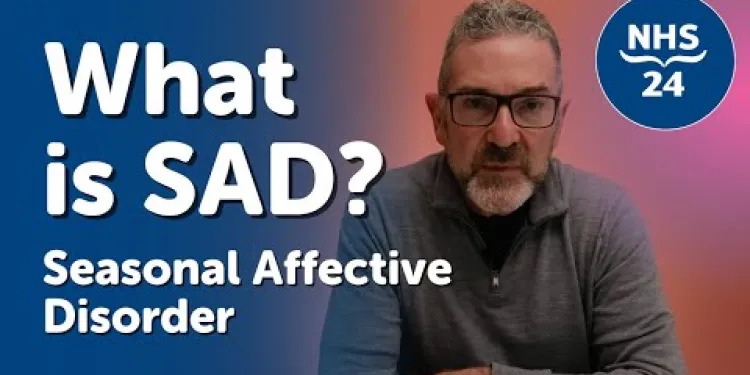
What is Seasonal Affective Disorder? (SAD)
Relevance: 15%
-
What are the main types of eating disorders?
Relevance: 14%
-
What are some common myths about eating disorders?
Relevance: 14%
-

Are AI systems used alone in lung cancer diagnosis or alongside human radiologists?
Relevance: 14%
-

How common is Seasonal Affective Disorder?
Relevance: 14%
-

Short Films About Mental Health - Personality Disorders
Relevance: 14%
-

What is health-related anxiety?
Relevance: 14%
-
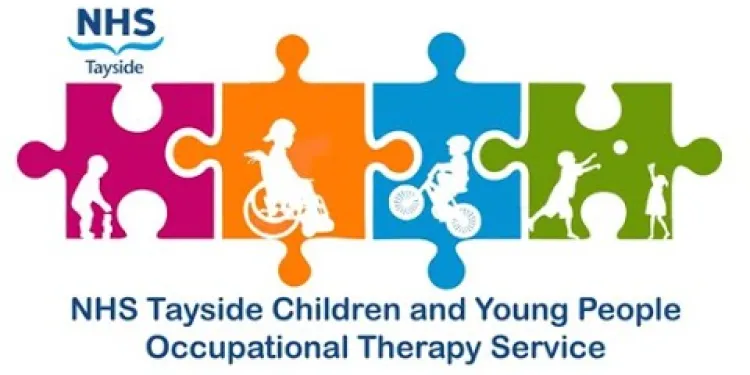
Developmental Coordination Disorder (DCD) for Children and Young People
Relevance: 14%
Diagnosis of Obsessive Compulsive Disorder (OCD)
Understanding OCD
Obsessive Compulsive Disorder (OCD) is a mental health condition characterized by intrusive thoughts (obsessions) and repetitive behaviours (compulsions). Individuals with OCD often find these thoughts and actions disruptive to their daily lives. For effective treatment, an accurate diagnosis is crucial.Symptoms of OCD
Recognising the symptoms of OCD is the first step towards diagnosis: - **Obsessions:** Persistent, unwanted thoughts, urges, or images that cause significant anxiety. These can include fears of contamination, aggressive thoughts, or the need for symmetry. - **Compulsions:** Repetitive behaviours or mental acts performed to alleviate anxiety or prevent a feared event. Common compulsions include excessive hand washing, checking, counting, or arranging items in a specific way.Initial Consultation
The diagnosis typically begins with a visit to a General Practitioner (GP). The GP will conduct an initial assessment, asking about the individual's symptoms, their duration, and the impact on daily functioning. It’s essential to be open and honest about your experiences to ensure an accurate diagnosis.Referral to a Specialist
If the GP suspects OCD, they may refer the individual to a mental health specialist, such as a psychologist or psychiatrist. In the UK, referrals can also be made to the Improving Access to Psychological Therapies (IAPT) programme, which offers specialized services for mental health conditions.Comprehensive Assessment
A mental health specialist will conduct a more comprehensive assessment. This can involve: - **Structured Interviews:** In-depth questioning based on standardized tools such as the Yale-Brown Obsessive Compulsive Scale (Y-BOCS), which evaluates the severity of the obsessions and compulsions. - **Medical History:** A review of personal and family medical history to rule out other conditions that might cause similar symptoms. - **Physical Examination:** Although not always required, a physical examination can help eliminate any physical causes of symptoms.Diagnosing OCD
Diagnosis is based on criteria outlined in the Diagnostic and Statistical Manual of Mental Disorders (DSM-5) or the International Classification of Diseases (ICD-10). Key diagnostic criteria include: - Presence of obsessions, compulsions, or both. - Symptoms are time-consuming (taking more than one hour per day) or cause significant distress or impairment. - The symptoms are not attributable to substance use or another medical condition.Post-Diagnosis Steps
After a formal diagnosis, a treatment plan tailored to the individual’s needs will be developed. Treatment options include Cognitive Behavioural Therapy (CBT), particularly a subtype called Exposure and Response Prevention (ERP), and medication such as selective serotonin reuptake inhibitors (SSRIs). In the UK, support is available through the NHS, private healthcare providers, and various charitable organizations specializing in OCD. Early diagnosis and treatment are critical in managing OCD and improving the quality of life for those affected.Conclusion
Diagnosing OCD involves recognizing symptoms, undergoing thorough assessment by healthcare professionals, and using structured criteria. Access to proper treatment can significantly enhance the well-being of individuals living with OCD. If you suspect you or someone you know might have OCD, seeking professional help is an important first step.Diagnosis of Obsessive Compulsive Disorder (OCD)
Understanding OCD
Obsessive Compulsive Disorder (OCD) is a condition that affects mental health. It involves having unwanted thoughts (called obsessions) and doing actions over and over again (called compulsions). These thoughts and actions can make everyday life hard. To get the right help, you need to know you have OCD. This means a doctor needs to say that you have it.Symptoms of OCD
To find out if someone has OCD, look for these signs: - **Obsessions:** These are thoughts or images you don’t want but can’t stop thinking about. They can make you feel very worried. Examples are being afraid of dirt, thinking about hurting others, or needing everything to be just right. - **Compulsions:** These are actions you feel you must do repeatedly to feel less worried or avoid something bad. Examples include washing hands many times, checking things a lot, counting, or fixing things to be in a specific order.Initial Consultation
To find out if you have OCD, start by visiting your main doctor, called a GP. The GP will talk to you about what you’ve been feeling and how long it has been happening. They will also ask how it affects your daily life. It’s important to tell the truth about your feelings and actions to get the right help.Referral to a Specialist
If the GP thinks you might have OCD, they may send you to see a mental health specialist, like a psychologist or psychiatrist. In the UK, you might also be referred to a service called Improving Access to Psychological Therapies (IAPT), which helps with mental health problems.Comprehensive Assessment
A mental health specialist will look more closely at your symptoms. This might include: - **Structured Interviews:** The specialist will ask detailed questions using tools like the Yale-Brown Obsessive Compulsive Scale (Y-BOCS). This helps to see how serious the obsessions and compulsions are. - **Medical History:** The specialist will talk about your health history and your family's health to check for other problems. - **Physical Examination:** Sometimes a physical check-up is done to make sure nothing else is causing your symptoms.Diagnosing OCD
To say someone has OCD, doctors use special guidelines: - Having obsessions, compulsions, or both. - The symptoms take up a lot of time (more than an hour each day) or make life very hard. - Symptoms are not caused by using drugs or because of another illness.Post-Diagnosis Steps
Once it is confirmed that you have OCD, a plan is made to help you. This might include talking therapy called Cognitive Behavioural Therapy (CBT), and especially a type called Exposure and Response Prevention (ERP). Medicine called selective serotonin reuptake inhibitors (SSRIs) might also help. In the UK, help is available through the NHS, private doctors, and charities that focus on OCD. Getting help early is important for managing OCD and making life better for those who have it.Conclusion
To know if you have OCD, it’s important to notice the signs, talk to doctors, and use the right guidelines. Getting the right treatment can really help people with OCD feel better. If you think you or someone you know might have OCD, it’s important to talk to a doctor.Frequently Asked Questions
What is obsessive compulsive disorder (OCD)?
Obsessive compulsive disorder (OCD) is a mental health condition where a person experiences frequent, distressing thoughts (obsessions) and performs repetitive behaviours (compulsions) in an attempt to relieve the distress.
How common is OCD in the UK?
OCD affects approximately 1-2% of the population in the UK, meaning hundreds of thousands of people live with the condition.
What are common symptoms of OCD?
Common symptoms of OCD include persistent unwanted thoughts (obsessions), repetitive behaviours or mental acts (compulsions), and significant distress or impairment in daily functioning.
What causes OCD?
The exact cause of OCD is not known, but it is believed to involve a combination of genetic, neurological, behavioural, cognitive, and environmental factors.
How is OCD diagnosed?
OCD is diagnosed by a mental health professional through a comprehensive assessment that includes a detailed interview and the use of standardized diagnostic criteria.
What treatments are available for OCD?
Effective treatments for OCD include cognitive behavioural therapy (CBT), particularly a method called exposure and response prevention (ERP), and medications such as selective serotonin reuptake inhibitors (SSRIs).
Can OCD be cured?
While there is no cure for OCD, effective treatments can significantly reduce symptoms and improve quality of life for many people.
What is the difference between obsessions and compulsions?
Obsessions are unwanted, intrusive thoughts, images, or urges that cause distress, while compulsions are repetitive behaviours or mental acts performed to reduce the anxiety caused by the obsessions.
How can I support a loved one with OCD?
Support a loved one with OCD by being patient, encouraging them to seek professional help, and educating yourself about the disorder. Avoid enabling their compulsions, which can reinforce the cycle.
Is OCD a lifelong condition?
OCD can be a chronic condition, but with effective treatment, individuals can manage their symptoms and lead fulfilling lives.
Can children have OCD?
Yes, children can develop OCD, and it often presents differently in children than in adults. Early diagnosis and treatment are important for managing symptoms.
What should I do if I think I have OCD?
If you think you have OCD, it is important to seek help from a healthcare professional who can provide a proper diagnosis and discuss treatment options.
Are there any support groups for OCD in the UK?
Yes, there are several support groups and organisations in the UK, such as OCD-UK and OCD Action, which provide resources, support, and community for those affected by OCD.
Can stress make OCD worse?
Yes, stress can exacerbate OCD symptoms. It's important to manage stress through healthy coping strategies and seeking professional help if needed.
What should I avoid saying to someone with OCD?
Avoid making dismissive comments like "Just stop it," "Everyone is a little OCD," or questioning their illness. These statements can be hurtful and minimize their experience.
What is OCD?
OCD means Obsessive Compulsive Disorder. It is a condition where people have thoughts and worries that don't go away. These thoughts are called obsessions.
People with OCD might also feel like they have to do certain things (called compulsions) to stop the worry or to feel better.
For example, someone with OCD might wash their hands many times because they are worried about germs.
If you or someone you know has OCD, it can help to talk to a doctor or a counselor. They can help with special tools or ways to feel better.
Obsessive Compulsive Disorder, or OCD, is a mental health problem. People with OCD have upsetting thoughts that happen a lot. These are called obsessions. To feel better, they might do the same action over and over again. These are called compulsions.
How many people have OCD in the UK?
Many people in the UK have something called OCD. OCD means "Obsessive-Compulsive Disorder." It makes people have strong thoughts and feel like they need to do things over and over.
About 1 out of every 100 people have OCD. This means if you meet 100 people, one of them might have OCD.
Some things can help people with OCD. Doctors and talking to someone can help a lot. There are also special methods like drawing or writing that can make people feel better.
OCD affects about 1 to 2 out of every 100 people in the UK. This means a lot of people have it.
What are signs of OCD?
OCD means Obsessive Compulsive Disorder. It's when thoughts and actions repeat a lot.
Common signs of OCD are:
- Worrying about germs or dirt.
- Organizing things in a certain way.
- Checking things over and over.
- Counting things again and again.
If you need help, you can:
- Talk to a doctor or an adult you trust.
- Use picture charts to help understand.
- Use apps or games that make learning fun.
People with OCD might have thoughts they don’t want that keep coming back. These are called obsessions. They might also do the same thing over and over again, called compulsions, to try to feel better. This can make everyday life hard and stressful.
If you or someone you know is having a hard time, there are things that can help. You can talk to a doctor or therapist. Using reminders can help keep track of what to do next. It's also good to make a checklist of tasks. Friends and family can be very helpful, too.
What makes OCD happen?
Obsessive-Compulsive Disorder (OCD) can happen for different reasons. Some of these could be:
- Family: If someone in your family has OCD, you might have it too.
- Brain: Sometimes the brain works differently in people with OCD.
- Stress: Feeling very worried or stressed might make OCD start.
- Life: Changes in life, like moving to a new place or starting a new school, might make OCD happen.
Tools that can help:
- Talk to someone you trust.
- Write down your feelings in a diary.
- Draw pictures that show how you feel.
- Use apps or videos that help you relax.
Doctors don't know exactly what causes OCD. But they think it comes from a mix of genes, brain changes, habits, thoughts, and things around us.
How do doctors know if someone has OCD?
Doctors talk to the person to find out how they feel. They ask questions to see if the person worries a lot or does the same thing many times.
Doctors might use special questions to help. They listen to how the person talks about their worries.
Drawing how you feel or talking to someone you trust can help a lot.
When in doubt, it’s good to ask a doctor or a friendly adult to help you understand.
A doctor who helps with how we think and feel can find out if someone has OCD. They do this by asking lots of questions and using special checklists to see if it matches known signs.
What helps people with OCD feel better?
Helping people with OCD includes a special kind of talking therapy called cognitive behavioural therapy (CBT). One part of CBT is called exposure and response prevention (ERP). Medicine called selective serotonin reuptake inhibitors (SSRIs) can help too.
Can OCD be fixed?
OCD means Obsessive Compulsive Disorder. It is when people have thoughts they can't stop and feel they must do things over and over.
Some people can get better if they see a doctor. They might do talking therapy or take medicine to help.
Doctors and therapists can help. They know what to do. They work with you to feel better.
If you or someone you know has OCD, talking to a doctor or therapist is a good idea.
Parents, teachers, or caregivers can also help you find a doctor.
Some things help make OCD better:
- Talking to someone you trust about how you feel.
- Doing fun activities like drawing or playing games.
- Practicing relaxation, like deep breathing.
There is no way to make OCD go away completely, but there are good treatments that can help a lot. These treatments can make the symptoms much better and help people live happier lives.
What is the difference between obsessions and compulsions?
Obsessions are thoughts that won't go away. They might make you feel worried or upset.
Compulsions are things you feel must do again and again to feel better or safe.
If you're having trouble, there are ways to help. You can talk to a grown-up about how you feel. They might suggest seeing a doctor or counselor who can help you find ways to feel better.
Using tools like drawing what you think or feel, or deep breathing, might also help you feel calm.
Obsessions are thoughts or pictures in your mind that you do not want and make you upset. Compulsions are things you do over and over again to feel less worried about those thoughts.
Tips to help:
- Talk to someone you trust about how you feel.
- Try to write down your thoughts and feelings.
- Use calm breathing to help you relax.
- Ask for help from a teacher or a helper.
How can I help someone I care about who has OCD?
Here are some simple ways to help:
- Listen: Let them talk about how they feel. Show you care by listening.
- Learn: Read about OCD to understand what it is. This will help you know what they are going through.
- Stay patient: Sometimes they might do things over and over. Be patient and do not get upset.
- Encourage: Support them in getting help from doctors or therapists.
- Remind: Help them remember to follow what professionals advise.
- Use tools: Suggest using a journal to write down their feelings or an app for relaxation exercises.
Remember, you are a big help just by being there and caring!
Help someone you care about who has OCD by being patient with them. Encourage them to talk to a doctor or therapist. Learn more about OCD so you understand it better. Try not to help them do things that are part of their OCD habits because this can make things worse.
Does OCD last forever?
Learning about OCD:
- OCD stands for Obsessive-Compulsive Disorder.
- It makes people feel worried or do the same thing over and over.
Does it last forever?
- For some people, OCD can last a long time.
- But, there are ways to help manage it.
What can help?
- Talking to a doctor or therapist.
- Using medicine can help some people.
- Activities like yoga or deep breathing can help you relax.
- Friends and family can offer support.
OCD is something some people have for a long time. But with the right help, people can feel better and live happy lives.
Can kids have OCD?
Yes, kids can have OCD.
OCD stands for Obsessive-Compulsive Disorder.
It means having thoughts or doing things over and over, even if you don't want to.
If you think a kid might have OCD, it's a good idea to talk to a doctor.
There are ways to help, like:
- Telling a teacher or family member how you feel.
- Using a daily planner to stay organized.
- Playing relaxing music to calm down.
Yes, kids can have OCD. OCD can look different in kids than it does in grown-ups. It is important to find out early and get help so they can feel better.
What to Do If You Think You Have OCD
If you think you have OCD, here are some steps to help you:
1. Talk to Someone: Tell someone you trust, like a family member or a friend, about how you feel.
2. See a Doctor: Go to a doctor or a mental health expert. They can help you understand your feelings and give advice.
3. Write It Down: Keep a diary or journal about your thoughts and feelings. This can help you when you talk to a doctor.
4. Breathe and Relax: Try taking deep breaths or doing simple exercises to calm down.
5. Get Support: There are groups and people who can give you support. Ask your doctor about them.
Remember, you are not alone. Many people feel the same way, and help is available.
If you think you have OCD, it is important to talk to a doctor. They can tell you for sure if you have OCD and talk about ways to help you feel better.
Is there help for people with OCD in the UK?
If you have OCD, there are places where you can get help. In the UK, you can join a group with other people who also have OCD. Being with others can make you feel better and teach you new ways to handle things.
You can use the internet to find these groups. Ask someone you trust if you need help searching. They can help you look online for support groups near you.
Yes, there are groups in the UK that can help people with OCD. Two of these groups are OCD-UK and OCD Action. They give support, information, and a community for people with OCD.
Does stress make OCD worse?
Feeling stressed can make OCD (Obsessive-Compulsive Disorder) harder to handle. Here is how you can help:
- Talk to someone you trust. Sharing your feelings can help.
- Take deep breaths to feel calm.
- Keep a diary. Write down your thoughts and feelings.
If you feel overwhelmed, ask an adult or a doctor for help. You are not alone, and there are ways to feel better.
Yes, stress can make OCD symptoms worse. It is important to handle stress with healthy habits and to get help from a professional if you need it.
What should I not say to someone with OCD?
Don't say things like "Just stop it" or "Everyone is a little OCD." These words can hurt feelings and make their problem seem small.
Useful Links
This website offers general information and is not a substitute for professional advice.
Always seek guidance from qualified professionals.
If you have any medical concerns or need urgent help, contact a healthcare professional or emergency services immediately.
Some of this content was generated with AI assistance. We’ve done our best to keep it accurate, helpful, and human-friendly.
- Ergsy carfully checks the information in the videos we provide here.
- Videos shown by Youtube after a video has completed, have NOT been reviewed by ERGSY.
- To view, click the arrow in centre of video.
- Most of the videos you find here will have subtitles and/or closed captions available.
- You may need to turn these on, and choose your preferred language.
- Go to the video you'd like to watch.
- If closed captions (CC) are available, settings will be visible on the bottom right of the video player.
- To turn on Captions, click settings .
- To turn off Captions, click settings again.
More Items From Ergsy search
-

BSL - Diagnosis of obsessive compulsive disorder (OCD)
Relevance: 100%
-

BSL - Introduction to obsessive compulsive disorder (OCD)
Relevance: 84%
-

Clara Strauss: What is Obsessive Compulsive Disorder OCD
Relevance: 84%
-

OCD
Relevance: 55%
-

BSL - Diagnosis of panic disorder
Relevance: 30%
-
Can eating disorders occur with other mental health conditions?
Relevance: 29%
-

Attention deficit hyperactivity disorder (ADHD) - Diagnosis
Relevance: 24%
-
What are common symptoms of eating disorders?
Relevance: 22%
-
What is an eating disorder?
Relevance: 22%
-

How do eating disorders affect mental health?
Relevance: 21%
-

What type of anxiety do children and teenagers experience?
Relevance: 21%
-
What are the early warning signs of an eating disorder?
Relevance: 21%
-
What is body dysmorphia and how is it related to eating disorders?
Relevance: 21%
-
How are eating disorders diagnosed?
Relevance: 20%
-
Are there preventative measures for eating disorders?
Relevance: 18%
-
Who is at risk for developing an eating disorder?
Relevance: 18%
-
How can someone seek help for an eating disorder?
Relevance: 18%
-
What is an Eating Disorder?
Relevance: 17%
-

BSL - Introduction to panic disorder
Relevance: 17%
-
Are eating disorders only about food?
Relevance: 16%
-

Bipolar disorder: Rod's story | NHS
Relevance: 16%
-

Eating disorders: treatment
Relevance: 16%
-

Living with Bipolar Disorder
Relevance: 16%
-
Is it possible to recover from an eating disorder?
Relevance: 15%
-

What is the impact of eating disorders on physical health?
Relevance: 15%
-

Prostate cancer diagnosis and tests
Relevance: 15%
-

BSL - Causes of panic disorder
Relevance: 15%
-

The treatment approach for an eating disorder
Relevance: 15%
-

BSL - Treatment of panic disorder
Relevance: 15%
-
Can eating disorders be treated?
Relevance: 15%
-

BSL - Symptoms of panic disorder
Relevance: 15%
-

Head and Neck Cancer Diagnosis
Relevance: 15%
-

What is Seasonal Affective Disorder? (SAD)
Relevance: 15%
-
What are the main types of eating disorders?
Relevance: 14%
-
What are some common myths about eating disorders?
Relevance: 14%
-

Are AI systems used alone in lung cancer diagnosis or alongside human radiologists?
Relevance: 14%
-

How common is Seasonal Affective Disorder?
Relevance: 14%
-

Short Films About Mental Health - Personality Disorders
Relevance: 14%
-

What is health-related anxiety?
Relevance: 14%
-

Developmental Coordination Disorder (DCD) for Children and Young People
Relevance: 14%


